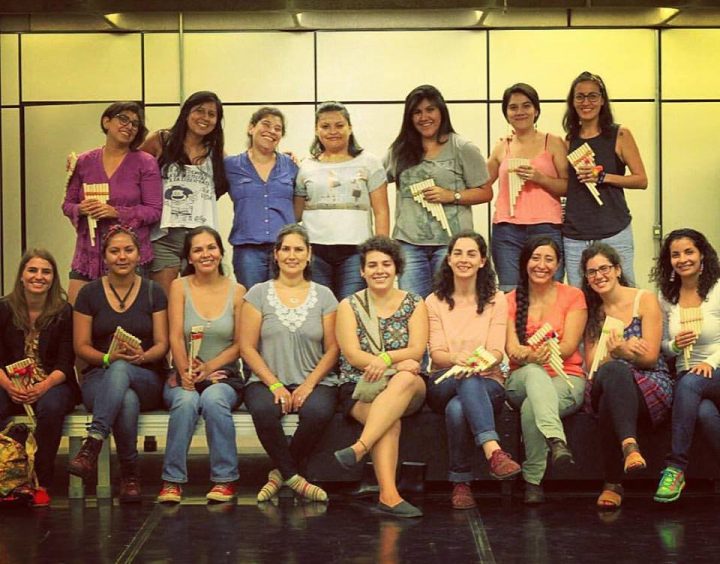We interviewed Jobana Moya and Andrea Carabantes, coordinators of the Network of Migration, Refuge and Gender that participates in the IV Latin American Humanist Forum that will take place during the days 10, 11 and 12 of May in Santiago de Chile, under the slogan “Building Convergences”, in different venues of the Yungay Neighborhood.
Pressenza: We want to know how the Network in which you participate has been working, what issues you have faced and what trajectory you have.
Jobana Moya and Andrea Carabantes: This network was born in 2014 with the creation of the Front of Immigrant and Refugee Women in São Paulo, Brazil. This front was created by a strong need to articulate the collectives and organisations that worked with the issue in the city.
Since the World Social Forum on Migration in São Paulo in 2016, of which the Warmis – Convergence of Cultures was the organiser, we perceive the urgency to articulate ourselves at the Latin American level, to increase the network and to strengthen ties.
In 2018, in view of the IV Latin American Humanist Forum, our collective decided to be part of the organisation and to work between Brazil and Chile. In São Paulo, we held a pre-forum with local organisations, the result of which we brought to Chile, and we disseminated this event among organisations and institutions that work with the topic in the various countries of the continent. In Santiago, we actively participated in the organisation of the forum and articulated with local migrant organisations to establish a day of struggle against racism, a form of discrimination that is closely linked to migration.
Pressenza: What does this Forum and face-to-face meeting to be held in Santiago mean to you?
JM and AC: It is the opportunity to meet with different views on the theme of Migration, Refuge and Gender. We want to converge in diversity, know the different possible views and find the point of convergence from which we will strengthen ourselves in the future in a broad way.
Chile at the moment is very interesting because it has received a large number of migrants and refugees, mainly from conflicts in the region, and this has generated a need for organisation on the part of migrants. There are, proportionally, many more organisations here in Santiago than in Sao Paulo. Racism and xenophobia have been uncovered, but also solidarity.
We hope that there will be a very rich exchange, Brazil is an intrinsically migrant country, at least that is how it is recognised, and Chile, on the contrary, is a country that received, comparatively to other countries in the region, very few migrations; that has changed recently and makes the possibility of an exchange between experiences very productive because of the encounter of experienced and new views that will be on the subject.
Pressenza: What projections do you see and how do you plan to continue working in the future?
JM y AC: We want to promote and articulate the Latin American and Caribbean Network on Gender and Migration, in order to strengthen links and launch simultaneous actions to stop the setbacks in the current migration and refuge policies in the Region. We will focus on fighting growing xenophobia and discrimination and especially on changing the way we look at migration. We want to influence a change of perspective, in which public policies and society are replaced by the human right to migrate.
Pressenza: How do you approach the interaction between this Network and the other 23 Networks participating in the same Forum?
JM and AC: Migration itself is a pattern that includes all the other patterns because we are talking about human beings that when migrating are violated in all their rights, therefore, we always converge with health, housing, politics, feminism, environment, etc… And in this event we hope to generate spaces of encounter between the Networks to know the diverse postponements and points of view, and to meet in the common aspects from which we can advance together.
Translation Pressenza London






